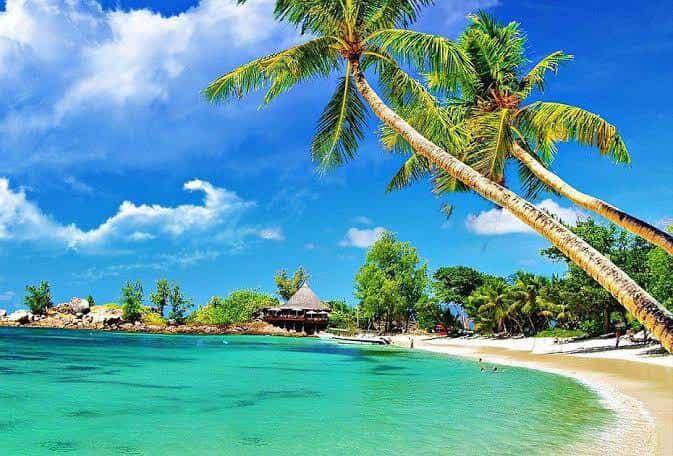
Discovering Weed in Mozambique: Law, Culture, and Cannabis Trends
Mozambique, a southeastern African nation bordered by South Africa, Tanzania, and Zimbabwe, is renowned for its rich cultural heritage, stunning coastline, and diverse ecosystems. Among its many social and economic dynamics, cannabis—locally known as “diamba” or “marijuana”—holds a unique place in both rural and urban contexts. Discovering weed in Mozambique involves navigating legal frameworks, cultural perceptions, social practices, and regional influences, reflecting the country’s complex relationship with cannabis.
Cannabis in Mozambique is not merely a recreational issue; it also intersects with traditional use, economic activities, and evolving social trends, offering insight into how a developing nation balances law, culture, and global cannabis influences.
1. Cannabis Laws in Mozambique: Legal Landscape
Mozambique has a complex legal framework governing cannabis use, possession, cultivation, and distribution:
- Possession: Small amounts of cannabis for personal use are illegal but often decriminalized in practice. Individuals caught with minor quantities may face fines, warnings, or administrative penalties rather than criminal charges.
- Trafficking and sale: Selling, distributing, or trafficking cannabis remains a serious crime, carrying significant jail terms and fines. Mozambique actively prosecutes large-scale operations, particularly in urban centers and along trafficking routes.
- Cultivation: Growing cannabis is illegal without government authorization. Nevertheless, in rural areas, small-scale cultivation for personal or traditional use exists, though it remains officially prohibited.
- Medical cannabis: Mozambique is beginning to explore medical cannabis research and potential cultivation under strict regulatory oversight, though programs are limited and nascent.
The legal framework emphasizes strict control of commercial activity while tolerating limited personal or traditional use in some rural communities.
2. Historical and Cultural Context
Cannabis has a longstanding presence in Mozambique, particularly in rural and traditional contexts:
- Traditional use: Historically, cannabis was used for relaxation, medicinal purposes, and social bonding within communities. Traditional knowledge often emphasized moderation and ritualized consumption.
- Cultural integration: Cannabis has been incorporated into some local ceremonies and social gatherings, particularly in rural areas, though public perception varies widely.
- Modern exposure: Urbanization, globalization, and media influence have introduced recreational cannabis use among youth, artists, and urban social circles.
This historical context highlights a blend of tradition and modern experimentation, shaping Mozambique’s contemporary cannabis culture.
3. Social Perception of Cannabis
Public attitudes toward cannabis in Mozambique differ based on region, age, and social context:
- Older generations: Tend to view cannabis conservatively, associating it with laziness, criminality, or social disruption.
- Youth: Younger people are more exposed to global trends, media, and music that celebrate cannabis, leading to discreet recreational experimentation.
- Urban vs. rural: In urban areas such as Maputo and Beira, cannabis is more visible among social circles, whereas rural populations may tolerate traditional or medicinal use while disapproving of recreational abuse.
Cannabis culture exists primarily in private or semi-private settings, reflecting both social tolerance and caution.
4. Cannabis Culture in Urban Areas
Mozambique’s urban centers host the most visible cannabis culture:
- Maputo: As the capital city, Maputo sees cannabis use in private homes, music venues, and artistic communities, with emphasis on discretion due to legal restrictions.
- Beira and Nampula: Secondary cities have smaller-scale private use, often tied to university students, musicians, and young professionals.
- Social networks: Peer guidance is crucial, with friends emphasizing moderation, safe sourcing, and awareness of legal risks.
Urban cannabis culture is modern, discreet, and socially structured, balancing curiosity with law and safety.
5. Youth Trends and Awareness
Young Mozambicans are central to cannabis experimentation:
- University students and young professionals use cannabis recreationally, often in small social gatherings.
- Awareness of legal consequences encourages private, responsible, and discreet use.
- Exposure to international media, online communities, and music fosters curiosity while promoting modern cannabis knowledge.
Youth-driven cannabis culture reflects cautious experimentation influenced by global trends.
6. Access and the Black Market
Cannabis access in Mozambique is shaped by urban-rural dynamics, legality, and regional trade:
- Products include dried cannabis flowers, hashish, and occasionally edibles, though quality and potency vary.
- Access in urban areas typically relies on social networks, while rural areas may have local cultivation.
- Mozambique is part of a regional cannabis trade corridor in southern Africa, with law enforcement monitoring distribution and sales.
The black market shapes availability, pricing, and social norms surrounding cannabis.
7. Medical Cannabis and Research
Medical cannabis is slowly emerging in Mozambique:
- Research explores therapeutic uses such as pain management, anti-inflammatory applications, and neurological conditions.
- Pilot programs for regulated cultivation and clinical trials are under development, reflecting interest in both economic and health potential.
- The medical framework is tightly controlled, reflecting Mozambique’s cautious approach to legal reform and international trends.
8. Health Considerations
Cannabis consumption carries health implications:
- Smoking may affect respiratory health, particularly with low-quality products.
- Unregulated products may vary in potency, risking overconsumption or contamination.
- Awareness among users emphasizes moderation, peer guidance, and informed use, particularly for first-time consumers.
Health and safety are central to responsible cannabis culture in Mozambique, especially in urban youth circles.
9. Tourism and Cannabis
Tourism intersects cautiously with cannabis in Mozambique:
- While some visitors may encounter cannabis in urban nightlife, possession or use is technically illegal and can carry legal consequences.
- Cannabis tourism is minimal; the primary draw remains Mozambique’s beaches, cultural heritage, and wildlife reserves.
- Responsible tourism requires awareness of local laws and discretion, particularly for recreational cannabis.
Cannabis tourism is largely informational or clandestine, not mainstream.
10. Regional Influence and Trends
Mozambique’s cannabis culture is shaped by regional exposure and Southern African trends:
- Neighboring countries like South Africa and Zimbabwe have more established cannabis industries, influencing awareness and availability.
- Regional trade networks affect access, though Mozambique enforces regulations against commercial trafficking.
- Global media and music introduce youth to cannabis culture, blending local tradition with modern recreational practices.
Regional influence contributes to cautious urban experimentation and knowledge sharing.
11. The Future of Cannabis in Mozambique
Mozambique’s cannabis landscape may evolve gradually:
- Legal developments: Decriminalization for personal use may expand, and regulated medical cannabis programs could develop.
- Youth influence: Urban youth exposure to global trends may foster evolving social norms around cannabis.
- Economic potential: Mozambique could benefit economically from regulated medical cannabis cultivation, balancing traditional law enforcement priorities with potential revenue.
Future trends point to incremental reform, careful regulation, and socially informed engagement.
Conclusion
Discovering weed in Mozambique involves navigating strict laws, social attitudes, traditional practices, and modern youth culture. Cannabis is illegal for commercial purposes, and enforcement is strong, especially in urban areas and along trafficking routes.
Youth, private social networks, and urban communities represent the primary context for cannabis culture, emphasizing discretion, peer guidance, and risk awareness. From private gatherings in Maputo to discreet rural use, cannabis in Mozambique exists as a carefully managed, culturally nuanced, and legally constrained activity.
Mozambique’s cannabis story reflects a nation balancing tradition, law enforcement, and modern curiosity, offering insight into how a Southern African country engages with both historical and contemporary cannabis trends. While curiosity and experimentation exist, cannabis use remains discreet, informed, and socially mindful, aligning with cultural and legal realities.
If you want, I can continue the “Discover Weed” series with “Discover Weed in Namibia”, which has a distinct legal and cultural context for cannabis.
Do you want me to do that next?

Not sure why you are still waiting for dealers to respond you and wait for the delivery… It’s 21st century dudes . these guys usually have several strains always available in center so just couple of clicks and you get GPS coordinates and a photo where to grab your stuff immediately after crypto payment or gift card payment. If something goes wrong they have support you may chat with after payment confirmation, but usually no problems detected
Just love this dude Tourbud. Keep up with the good work. Excellent customer service. He goes above and beyond to make sure the order is right, help and support if anything goes wrong.
It was hard to find a reliable plug but finally tourbud showed up and gained my trust. Definitely he is the way out and hands down the best.@ https://t.me/tourbud
I have tried a lot of weed strains, and the quality from TOURBUD is unbeatable. The process was seamless, and the strains arrived fresh and potent and I paid using bitcoin before delivery. guys text him on telegram for fast reply @ https://t.me/tourbud
As someone who”s always looking for natural wellness options, TOURBUD has been amazing. his weed strains helped me unwind after workouts ,and his service was top-notch, I was a bit hesitant at first, but TOURBUD made the entire purchase process easy and secure. email him tourbudguide@gmail.com
The variety of cannabis strains at tourbud is impressive I was able to find exactly what i was looking for and his customer service was very helpful, I can’t wait to try more products.
I contacted him on his telegram and due to security reasons he requested crypto payments which i did.
about 30minutes later my dope was dropped at my requested location
great guy!!!
i highly recommend email tourbudguide@gmail.com
Everytime I order, I get excited not only for his TOP NOTCH PRODUCTS, but his amazing customer service.
From the time I start my text, to when my weed arrives, tourbud makes every encounter fast, friendly and SO AFFORDABLE. He works with you to get what you need.
Thank you Tourbud for been so good to me everytime.